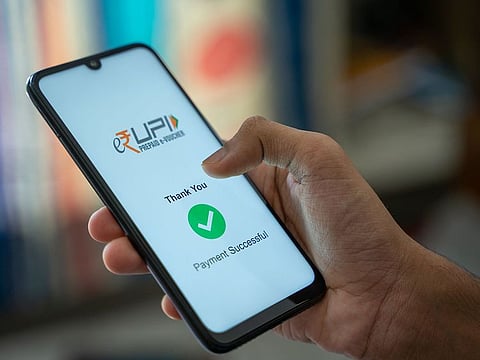Soon, make UPI payments directly through ChatGPT
With help from NPCI and Razorpay, AI assistants could be your checkout desk

Soon, you might be able to ask ChatGPT to buy something — and it’ll actually do it.
India’s payments authority and leading fintech players have begun piloting a system that lets users make UPI (Unified Payments Interface) payments directly within ChatGPT, marking the first step toward what they call 'agentic payments' — where an AI assistant can complete a transaction on your behalf, safely and instantly.
According to a Reuters report, the initiative is being led by the National Payments Corporation of India (NPCI), in collaboration with Razorpay and OpenAI. Early trials are already underway with a select group of merchants and users.
When ChatGPT meets UPI
Imagine chatting with ChatGPT to order your weekly groceries or pay your electricity bill. You type, 'Buy my usual BigBasket order,' and instead of redirecting you to an app or webpage, ChatGPT confirms your cart, requests your approval, and processes the payment — all inside the conversation.
The infrastructure beneath this is classic Indian fintech innovation: UPI provides the real-time payment rails; Razorpay, India’s leading payment gateway, handles the merchant and transaction logic; and OpenAI contributes the conversational interface and decision-making AI layer.
In this pilot, ChatGPT will act as an intermediary that initiates UPI transactions — powered by Razorpay’s back-end and NPCI’s secure rails — but only with the user’s explicit consent and authentication through their regular UPI app.
As TechCrunch reports, this model could turn ChatGPT from a mere assistant into an actual commerce agent, capable of discovering, suggesting, and even paying for products without users ever leaving the chat.
Who’s behind the push
For NPCI, this is a natural evolution of UPI — the system that already processes over 14 billion transactions a month. It’s the backbone of India’s fintech revolution and now, it’s testing whether conversational AI can make payments even more seamless.
Razorpay, one of India’s biggest payment solutions firms, is serving as the technological bridge between AI and the banking system. The company’s API infrastructure lets ChatGPT safely trigger and confirm payments while maintaining compliance and fraud detection.
And then there’s OpenAI, the American company behind ChatGPT, which has been exploring “agentic” AI models — systems that can perform real-world actions for users. For OpenAI, India’s UPI ecosystem is a perfect sandbox: it’s open, fast, and highly interoperable.
BigBasket, the grocery platform owned by Tata Digital, has joined as a launch partner, offering early use cases for conversational shopping. The Economic Times confirmed that users will soon be able to browse, place orders, and complete checkout — entirely through ChatGPT.
Inside the conversation
Here’s what it might feel like: You tell ChatGPT, “Order my usual breakfast items.” It checks your previous BigBasket history, shows you a suggested list, and asks, “Would you like to pay ₹845 to BigBasket via UPI?”
Once you confirm, the assistant initiates the payment through Razorpay’s backend, triggers the UPI prompt in your app for authentication, and notifies you once the transaction is complete.
Everything happens within the chat window. No pop-ups, no new tabs, no manual copy-pasting of payment links.
While the pilot is still in early testing, Times of India reports that the feature will initially be limited to small-ticket transactions with strict security layers and consent prompts.
Why it matters
The move has the potential to redefine how Indians interact with money online. India’s digital payments ecosystem has already transformed daily commerce — now, this integration brings it into the world of conversational AI.
For consumers, it means fewer steps, faster checkouts, and possibly smarter shopping recommendations. For creators and small merchants, it means a new direct-to-customer sales channel — without needing to build their own apps.
But it also raises new questions: Who holds liability if an AI misfires a transaction? How will privacy and financial data be safeguarded when a foreign AI interface interacts with India’s domestic payment systems? These will likely be key topics for regulators and industry experts in the months ahead.
Still, the implications are massive. India could become the first country where AI agents can transact natively on a public payment network, without human intermediaries.
As one fintech founder told Business Today, “This could make ChatGPT not just a search engine or assistant — but your personal cashier.”
What’s next
The pilot currently includes a limited set of merchants, with plans to expand to more categories like travel, utilities, and bill payments. Future updates might bring voice-based confirmations or integration with other AI assistants like Gemini and Claude, according to TechCrunch.
If it works, this could pave the way for similar AI-powered payment systems in other UPI-like economies — from Singapore’s PayNow to Brazil’s Pix.
The idea of paying through a conversation might have sounded futuristic a few years ago. But in India, it could soon be as simple as typing: “ChatGPT, send ₹500 to mom.”


